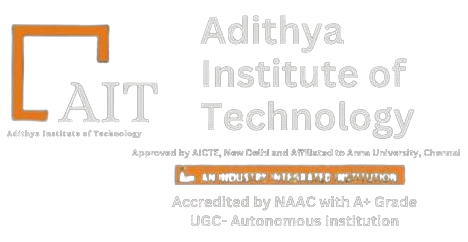PEO,PO’s,PSO’s
Graduates of Electrical and Electronics Engineering Programme will:
| PEO 1 | Have successful technical and professional careers in their chosen fields such as circuit theory, Field theory, control theory and computational platforms. |
| PEO 2 | Engross in life long process of learning to keep themselves abreast of new developments in the field of Electronics and their applications in power engineering. |
| PEO 3 | Design, simulate, analyze and develop Electrical and Electronics Engineering based products which are reliable, cost effective and safe. |
Programme Outcomes (POs)
| PO 1 | Engineering knowledge:Apply the knowledge of mathematics, science, engineering fundamentals, and an engineering specialization to the solution of complex engineering problems. |
| PO 2 | Problem analysis: Identify, formulate, review research literature, and analyze complex engineering problems reaching substantiated conclusions using first principles of mathematics, natural sciences, and engineering sciences. |
| PO 3 | Design / development of solutions:Design solutions for complex engineering problems and design system components or processes that meet the specified needs with appropriate consideration for the public health and safety, and the cultural, societal, and environmental considerations. |
| PO 4 | Conduct investigations of complex problems:Use research-based knowledge and research methods including design of experiments, analysis and interpretation of data, and synthesis of the information to provide valid conclusions. |
| PO 5 | Modern tool usage:Create, select, and apply appropriate techniques, resources, and modern engineering and IT tools including prediction and modeling to complex engineering activities with an understanding of the limitations |
| PO 6 | Apply reasoning informed by the contextual knowledge to assess societal, health, safety, legal and cultural issues and the consequent responsibilities relevant to the professional engineering practice |
| PO 7 | Understand the impact of the professional engineering solutions in societal and environmental contexts, and demonstrate the knowledge of, and need for sustainable development |
| PO 8 | Ethics:Apply ethical principles and commit to professional ethics and responsibilities and norms of the engineering practice. |
| PO 9 | Individual and team work:Function effectively as an individual, and as a member or leader in diverse teams, and in multidisciplinary settings. |
| PO 10 | Communication:Communicate effectively on complex engineering activities with the engineering community and with society at large, such as, being able to comprehend and write effective reports and design documentation, make effective presentations, and give and receive clear instructions |
| PO 11 | Project management and finance:Demonstrate knowledge and understanding of the engineering and management principles and apply these to one‘s own work, as a member and leader in a team, to manage projects and in multidisciplinary environments. |
| PO 12 | Life-long learning:Recognize the need for, and have the preparation and ability to engage in independent and life-long learning in the broadest context of technological change. |
Programmed Specific Outcomes (PSOs)
| PSO 1 | Able to apply the knowledge gained during the course of the program from Mathematics, Basic Computing, Basic Sciences and Social Sciences in general and all Electrical courses in particular to identify, formulate and solve real life problems faced in industries and / or during research work. |
| PSO 2 | Capable to provide socially acceptable technical solutions to complex electrical Engineering problems with the application of modern and appropriate techniques for Sustainable development. |
| PSO 3 | Comprehend, analyse and design products in core domains namely power, control and energy to meet the ever-changing demands of industry and society. |


